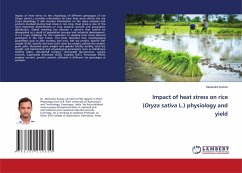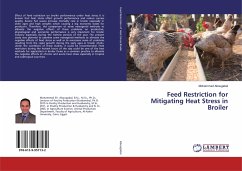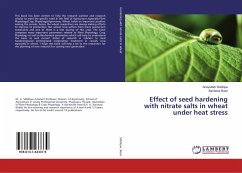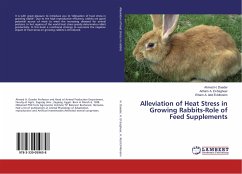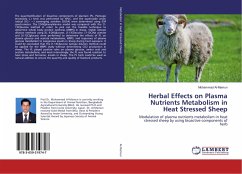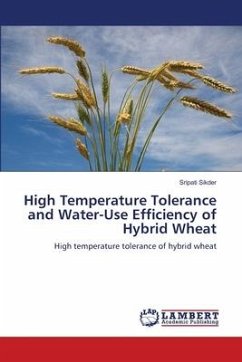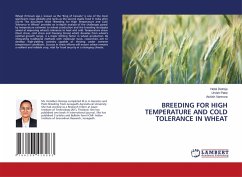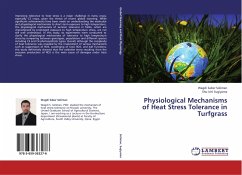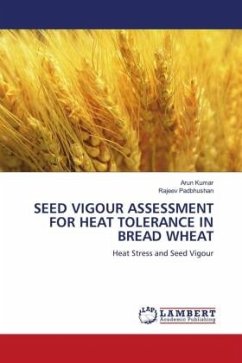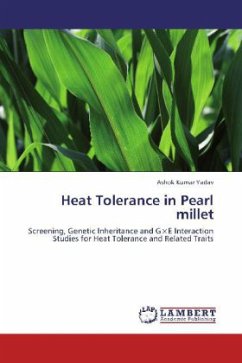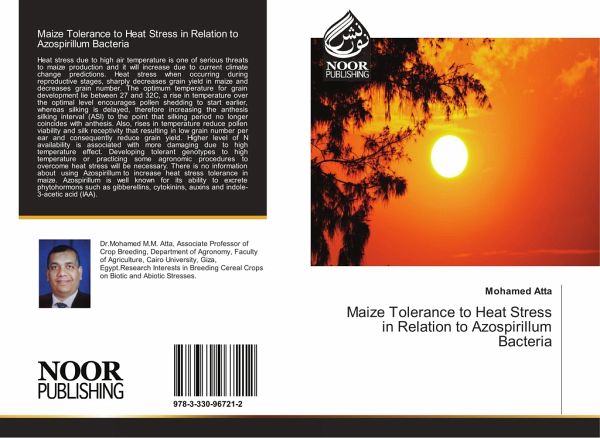
Maize Tolerance to Heat Stress in Relation to Azospirillum Bacteria
Versandkostenfrei!
Versandfertig in 6-10 Tagen
24,99 €
inkl. MwSt.

PAYBACK Punkte
12 °P sammeln!
Heat stress due to high air temperature is one of serious threats to maize production and it will increase due to current climate change predictions. Heat stress when occurring during reproductive stages, sharply decreases grain yield in maize and decreases grain number. The optimum temperature for grain development lie between 27 and 32C, a rise in temperature over the optimal level encourages pollen shedding to start earlier, whereas silking is delayed, therefore increasing the anthesis silking interval (ASI) to the point that silking period no longer coincides with anthesis. Also, rises in ...
Heat stress due to high air temperature is one of serious threats to maize production and it will increase due to current climate change predictions. Heat stress when occurring during reproductive stages, sharply decreases grain yield in maize and decreases grain number. The optimum temperature for grain development lie between 27 and 32C, a rise in temperature over the optimal level encourages pollen shedding to start earlier, whereas silking is delayed, therefore increasing the anthesis silking interval (ASI) to the point that silking period no longer coincides with anthesis. Also, rises in temperature reduce pollen viability and silk receptivity that resulting in low grain number per ear and consequently reduce grain yield. Higher level of N availability is associated with more damaging due to high temperature effect. Developing tolerant genotypes to high temperature or practicing some agronomic procedures to overcome heat stress will be necessary. There is no information about using Azospirillum to increase heat stress tolerance in maize. Azospirillum is well known for its ability to excrete phytohormons such as gibberellins, cytokinins, auxins and indole-3-acetic acid (IAA).



